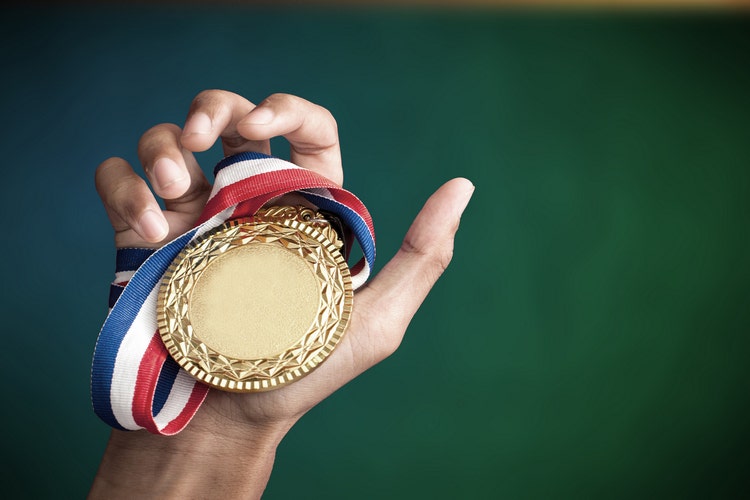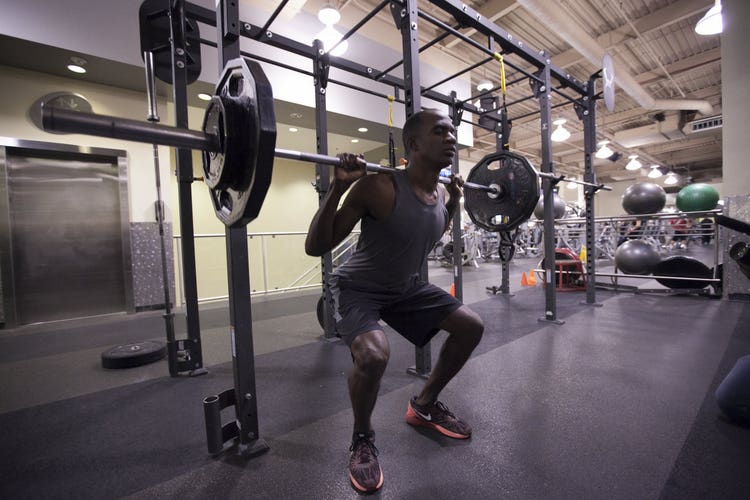After the Medal: Mindset Lessons from U.S. Paralympic Athletes

See what silver medalists, Cortney Jordan and Lex Gillette, have been up to since returning from Rio.
Although the limelight of the Rio 2016 Paralympic Games may be over, the athletes who worked so hard to get there are still digesting what they learned and earned.
24Life spoke to two Paralympic medalists, who are also Team 24 sponsored athletes, to see what they’ve been up to since Rio.

Cortney Jordan, who has cerebral palsy, earned three silver medals and a bronze medal in swimming at the Rio 2016 Paralympic Games. She also won medals in both the 2008 and 2012 Paralympic Games.
24Life: There is so much attention on the lead-up to and preparation for competition. What is the period after a big competition like?
Cortney Jordan (CJ): I think that my return from Rio was unconventional. I flew home to Baltimore and arrived Tuesday night at about 7 p.m. The next morning, I began my career as a fourth grade teacher at Bollman Bridge Elementary School. I have been striving to become a teacher while simultaneously training for more than 10 years. I didn’t want my dreams as an athlete to prevent me from achieving my personal goals as well. This year has been a whirlwind emotionally and physically, but I am proud of myself for what I have accomplished this year.
I still do not think that I have had time to process my transition from athlete to teacher. I’m so focused on doing everything I can for my kids — they are my priority. And, as a first-year teacher, I am sort of in survival mode. My training situation has definitely changed, I am only training three times a week and my diet is healthy, but I splurge more often. I still want to be a healthy individual, even if I’m not training for an event. I just feel better and more prepared for the day.
24Life: Is there any ritual or practice that you use to tap into the positive aspects of competition – after the fact? What did you learn while competing in Rio?
CJ: Rio was challenging, but I am proud of the outcome. It was tough not winning gold, but my competition was more difficult than ever before, and I was able to capture four medals. In all aspects of my life, I like to maintain a positive attitude. I’m grateful for the opportunity to represent my country and be a part of an incredible team. I also think that my struggle at the beginning of the Games and overall success is a learning experience for me and my students on the importance of perseverance. Even though this was my third visit to the Games, I think I learned more during these Games than any of my previous competitions. When I look back on Rio, I am happy.
24Life: What would you say to encourage would-be competitors?
CJ: It takes focus, determination, a positive attitude and the right community. However, in the end, it will be worth it. It’s a difficult, but exhilarating journey and will transform you into a stronger person. I would encourage others to do what they love and do their best. If you give it everything you have, you won’t be disappointed in your results.
24Life: What does the phrase “health is wealth” mean to you?
CJ: I think that health is one of the most valuable things. After Rio, I haven’t been exercising as much as I did when I was in training. I can tell a difference in my overall energy throughout the day. A good workout also totally improves my mood. I spent a few weeks out of the water, but I’m already back in because I want to feel better. Exercise and good health enhance how I feel on a daily basis.

Lex Gillette, who is fully blind, earned the silver medal in long jump at the Rio 2016 Paralympic Games. He also won medals in the 2004, 2008 and 2012 Paralympic Games.
24Life: There is so much attention on the lead-up to and preparation for competition. What is the period after a big competition like?
Lex Gillette (LG): The most exciting thing about returning home from the Paralympic Games is knowing that you have a break from training and competition for a few months. Embarking on the journey to represent the U.S. at the Paralympic Games is such a difficult task that takes away from you physically and mentally. Having time off post-Rio has been absolutely incredible. It’s a time to let the body recover, and it’s a time to think about competition. It’s a time to debrief and think about the things that I can do to improve for the next competition.
24Life: Is there any ritual or practice that you use to tap into the positive aspects of competition – after the fact? What did you learn while competing in Rio?
LG: I typically sit back and replay competition in my mind, like a movie. I always believe that I can improve and in order to do that, I need to look back on the things that I did well, and the things that I can improve upon. When I’m done with this sport, I want to be able to say that I did everything that I could do to bring out the best in myself. I do believe that competitors are constantly trying to knock you off of your throne, so you have to continue to do what you can to become the best athlete that you can be.
24Life: What does the phrase “health is wealth” mean to you?
LG: Health is wealth is such a powerful phrase. When we do what we can to preserve our health, we’re creating wealth within ourselves. Great health assists in having a great attitude, increased energy and a sharper focus. A healthier lifestyle helps put you in a position to get the most out of life from a physical, mental and emotional standpoint. An abundance of excellent health is the ultimate wealth. That will carry you a long way.
For a walk down memory lane to see how these athletes prepared for competition, check out these mindset tips and daily routines.
Photo credit: Thinkstock, iStock azizhjyaras.